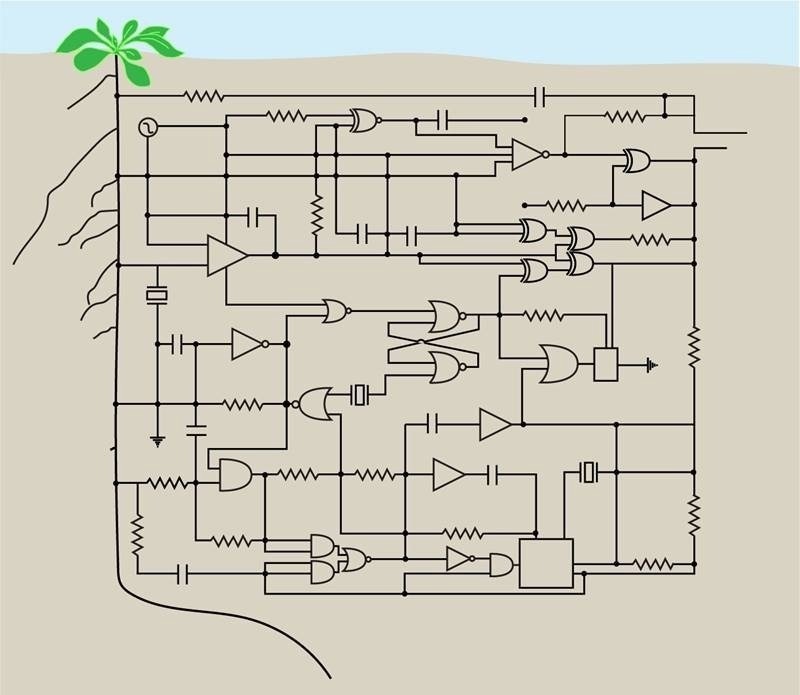An essential stage in genetically modifying plants to create better bioenergy crops is gene activity control. The results of this research led to the creation of artificial genes that could be coupled to produce certain patterns of gene expression in plants.
 Synthetic genetic circuits designed to rewire gene expression in plant roots can be used to change the way roots grow. Image Credit: Jennifer Brophy, Stanford University
Synthetic genetic circuits designed to rewire gene expression in plant roots can be used to change the way roots grow. Image Credit: Jennifer Brophy, Stanford University
The Boolean (“AND,” “OR,” and “NOT”) logic gates that function similarly to computer circuit boards are used to program the expression of the synthetic genes. The researchers were able to construct predictable, original expression patterns of fluorescent proteins using synthetic gene circuits.
As a final step, they adjusted the number of root branches using gene circuits that were identical to the original.
The impact
Scientists must carefully control gene expression to comprehend biological processes and develop new biotechnology applications. This is how DNA instructions are transformed into molecules and proteins that let cells function properly within an organism.
It can be difficult to manipulate a plant’s gene expression in a particular way. Synthetic genetic circuits might be one potential approach. It has been challenging to adjust circuit activity across various plant cell types.
New genetic circuits were created as a result of this research, facilitating precise control over the root architecture. This method will enable the creation of custom root structures since roots are crucial for the absorption of nutrients and water. Researchers will then be able to develop bioenergy crops with enhanced traits for development on marginal soils.
Summary
Scientists have modified a large number of bacterial gene regulators for use as synthetic activators or repressors of gene expression in plants, commonly known as transcription factors, to create synthetic gene circuits that can predictably regulate gene expression in plants.
The researchers showed that the synthetic transcription factors and their target DNA sequences (promoters) are capable of directing precise and controllable regulation of gene expression using a transient expression method.
They developed synthetic promoters that reacted to a single synthetic transcription factor to function as simple logic gates, whereas more intricate gates needed synthetic promoters that reacted to several inputs. According to the precise Boolean rules stored in the modified genes, the researchers discovered that these logic gates regulate expression in predictable ways.
The researchers employed Arabidopsis roots as a model system where endogenous promoters-controlled tissue-specific expression of the synthetic transcription factors to develop synthetic gene circuits in a multicellular environment. The successful completion of logical procedures caused the gene circuits to produce new expression patterns.
The quantity of root branching in the Arabidopsis root system was further tuned using one of the logic gates to quantitatively control the expression of a hormone signaling regulator. These findings show that genetic circuits can now be used to drive gene expression in various plant cell types, offering a blueprint for engineering more resilient bioenergy crops.
Source:
Journal reference:
Brophy, J. A. P., et al. (2022). Synthetic genetic circuits as a means of reprogramming plant roots. Science. doi.org/10.1126/science.abo4326